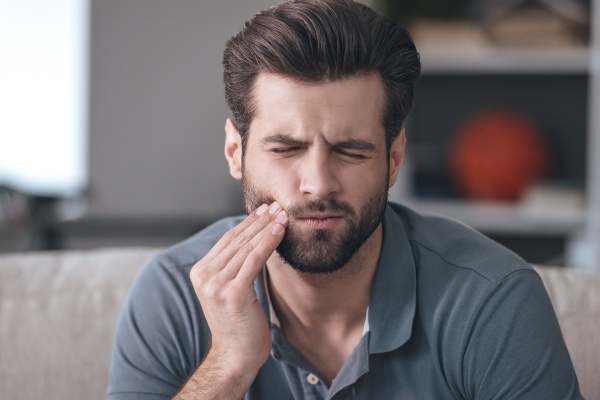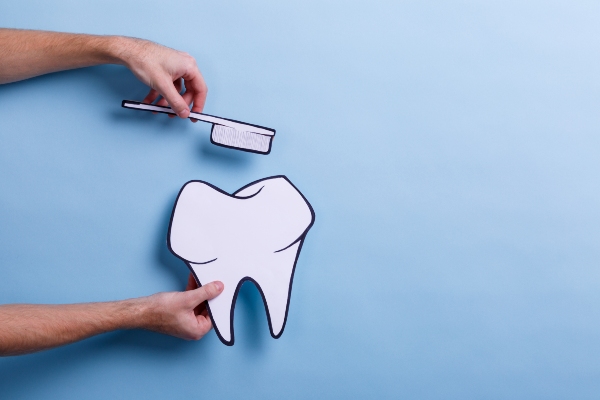Common Dental Treatments for Teeth Grinding From a General Dentist

A general dentist has simple solutions to teeth grinding, which is sometimes called bruxism. It is a common problem, but far too many patients allow the phenomenon to continue unchecked, risking serious damage to teeth.
Understanding teeth grinding
Teeth grinding is when upper and lower teeth constantly rub together, and it may occur when a person is awake or asleep. Generally, this is caused by stress during the day or poorly aligned teeth causing discomfort at night. Many patients may be unaware that they grind their teeth until being told by a partner or other observer.
Symptoms of teeth grinding include earache, headache, jaw pain and damaged tooth enamel. Left unchecked, these symptoms can worsen and may result in serious oral health problems.
Treatment for teeth grinding
Thankfully, a general dentist can provide a simple and effective treatment for bruxism. These treatments minimize discomfort and provide a better night of sleep.
The use of a nightguard
Nightguards are simple, clear devices fitted over a patient’s front teeth to prevent grinding. While nightguards are available in retail stores, a dentist will provide a personalized fit, ensuring optimal comfort.
Stress management
Often, stress is the underlying cause of bruxism. While a general dentist is not a psychiatrist, dentists can offer helpful information and make necessary referrals. While addressing the source of stress may not immediately stop the teeth grinding, a dentist may encourage a patient to seek a support group or schedule counseling sessions for long-term stress management. This approach can benefit much more than oral health.
Of course, reducing stress is not easy, and talking to other people about it may not be for everyone. There are other methods of reducing stress, such as exercising, that a dentist may recommend as well.
Lifestyle changes
A dentist may counsel patients on simple lifestyle changes that might reduce teeth grinding. For example, grinding is often exacerbated by the consumption of alcohol and caffeine. Additionally, being mindful of daytime grinding may help the jaw muscles to relax, reducing symptoms and potentially easing the act of nighttime grinding.
There are even simple tricks that may work for some patients, such as placing a warm, wet towel under the chin while sleeping. Of course, many of these lifestyle changes will not produce drastic results for everyone. However, a general dentist can provide many potential solutions in addition to more reliable interventions. At the very least, many of these lifestyle changes will promote better sleep even if they do not completely stop the bruxism.
Prescription medication
It is not common, but some patients may benefit from minor muscle relaxants to prevent teeth grinding during the night. This is often reserved for more extreme cases or situations where there may be additional benefit of the use of a muscle relaxant beyond treating bruxism.
Conclusion
Bruxism, or teeth grinding, is a serious problem that can lead to intense pain and serious oral health problems, but a general dentist can easily prescribe simple treatments. To learn more or to schedule an appointment, call our office today.
Are you considering a general dentist in the Delray Beach area? Get more information at https://www.palmbeachdentistry.com.
Check out what others are saying about our services on Yelp: Read our Yelp reviews.
Recent Posts
Routine dental care is one of the most important factors contributing to good dental health. While going to the dentist twice a year is the standard rule of thumb, the frequency of the visits ultimately depends on the patient's needs and the recommendation of the dentist. Learn how often routine care should be scheduled and…
Prioritizing routine dental care is necessary for good health. Unfortunately, some people can find it difficult to care properly for their teeth by brushing, flossing, and seeing a dentist on a regular basis. Patients who disregard dental hygiene and professional care need immediate action to prevent dangerous outcomes.In addition to an unsightly smile, failing to…
Many people may believe that they do not have time for routine dental care, which consists of daily brushing and flossing as well as periodic cleaning by a dentist. Admittedly, these tasks do take some time but should be a priority even in a busy schedule. People who do not take time for brushing, flossing,…
Professional dental cleanings are integral for keeping your mouth healthy. They remove plaque and tartar (hardened plaque) that regular brushing and flossing cannot, leaving your teeth and gums refreshed. Maintaining healthy habits that keep your smile bright and strong is essential to make the most of a dental cleaning. Caring for your teeth properly after…


